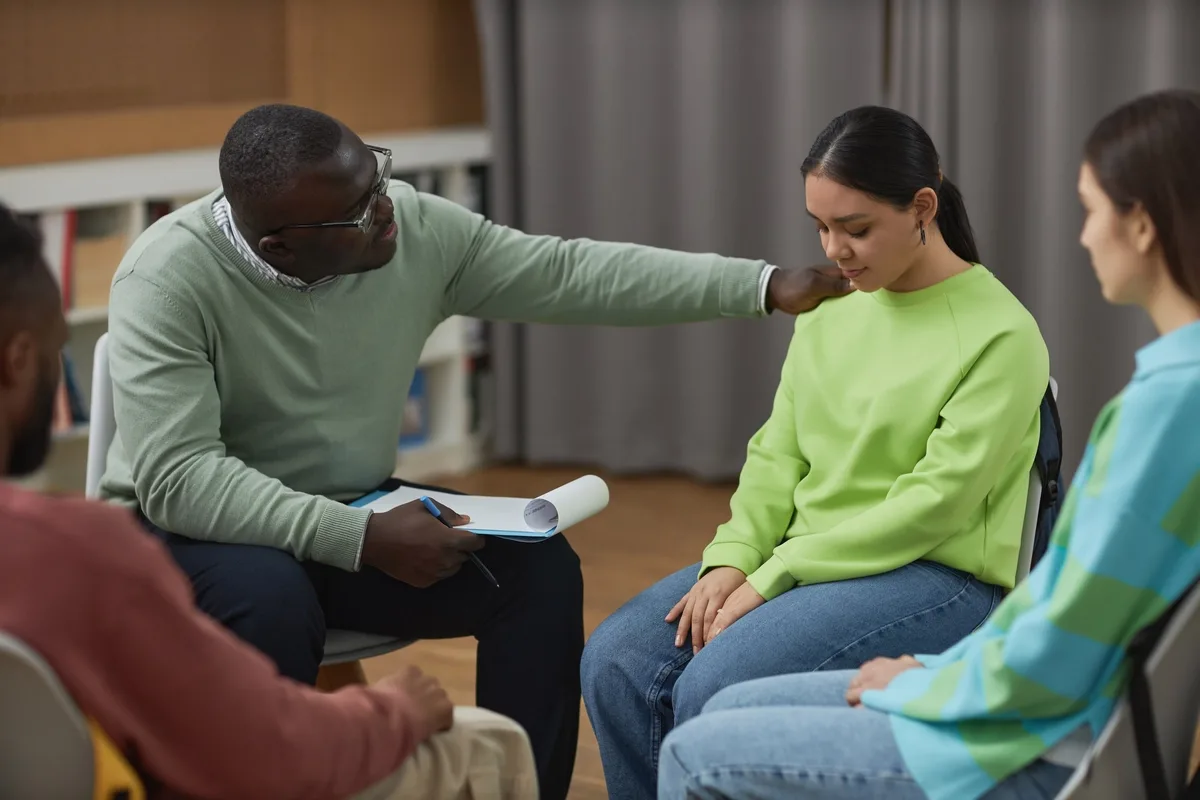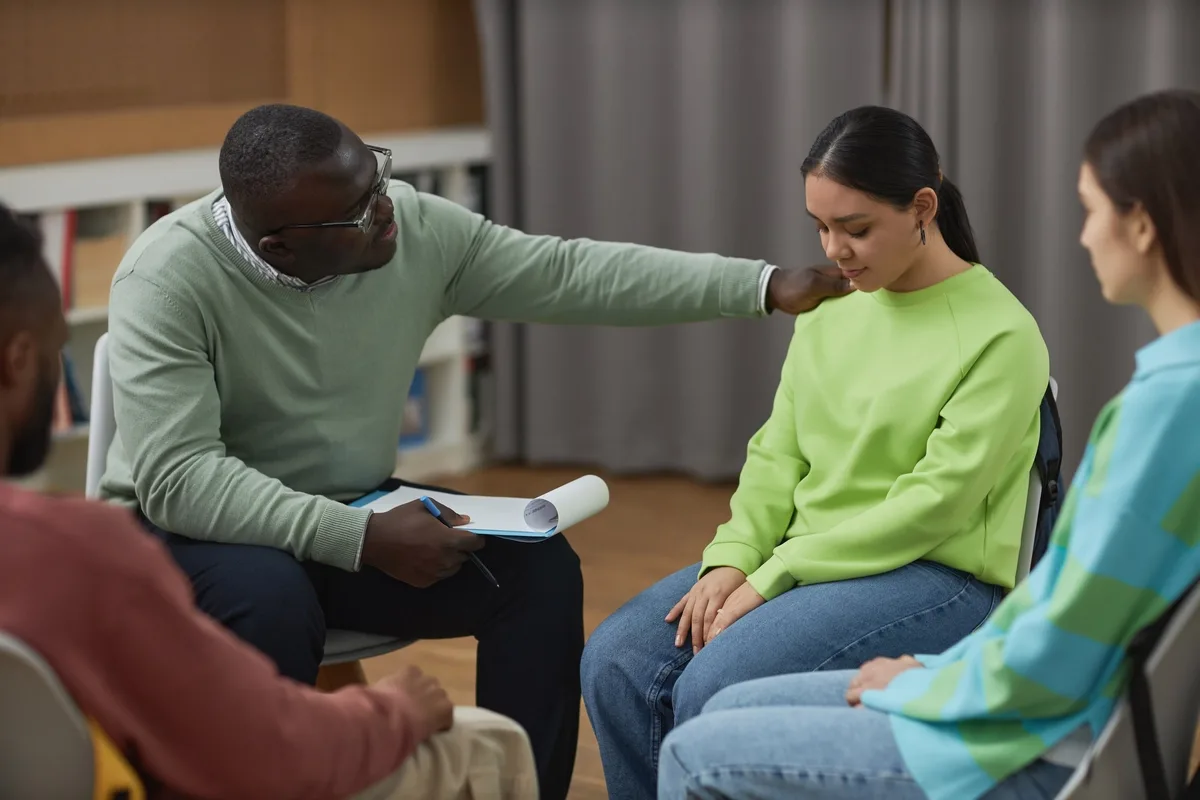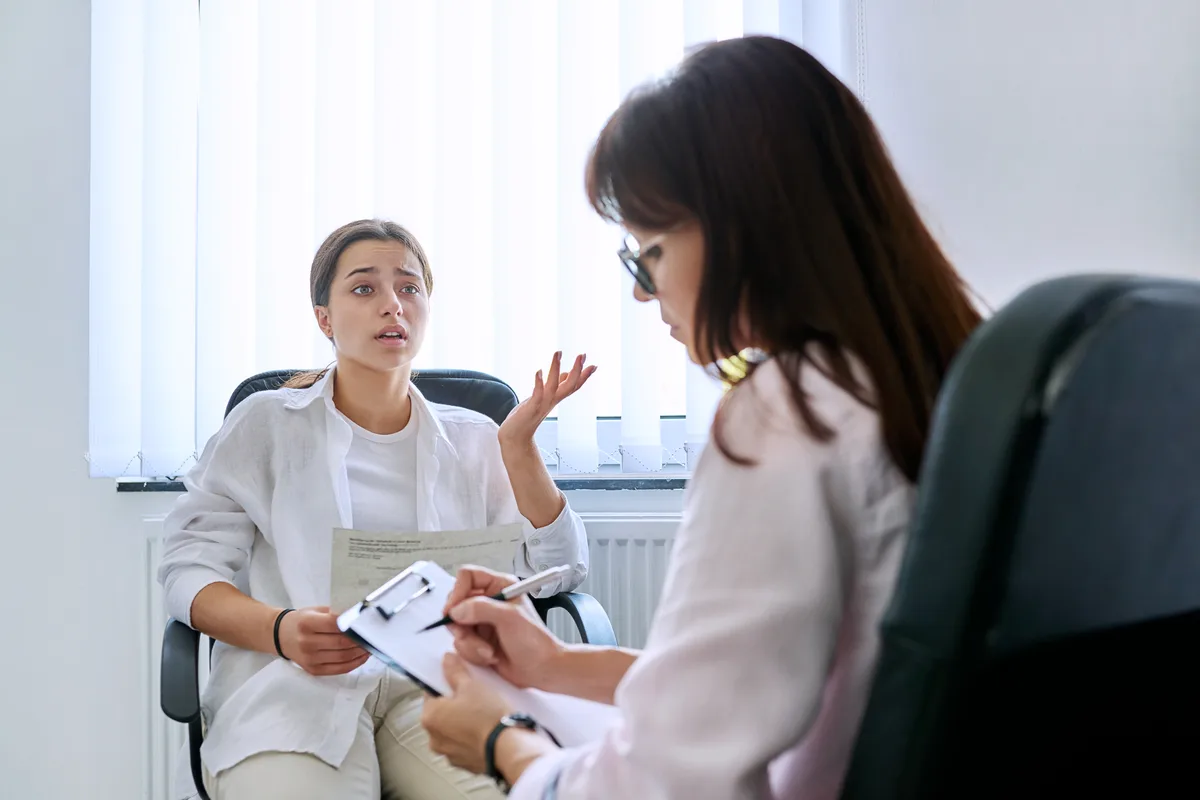24/7 Helpline:
(866) 899-221924/7 Helpline:
(866) 899-2219
Learn more about PTSD Treatment centers in Caddo County
PTSD Treatment in Other Counties

Other Insurance Options

Highmark

Premera

Cigna

Amerigroup

Health Net

Humana

Providence
Beacon

Optima

BlueShield

Absolute Total Care

Horizon Healthcare Service

Self-pay options

Covered California

ComPsych

Excellus

Carleon

Ambetter

Health Choice

Anthem

Center for Behavioral Health
Center for Behavioral Health is a private rehab located in Shreveport, Louisiana. Center for Behavio...

Physicians Behavioral Hospital
Physicians Behavioral Hospital, located in Shreveport, Louisiana, offers alcohol and drug rehab serv...

Shreveport-Bossier Rescue
Shreveport-Bossier Rescue is a non-profit organization located in Shreveport, LA. Shreveport-Bossier...

Shreveport Behavioral Health Clinic
Shreveport Behavioral Health Clinic is a public rehab located in Shreveport, Louisiana. Shreveport B...

Council on Alcoholism and Drug Abuse of Northwest Louisiana – CADA
Council on Alcoholism and Drug Abuse of Northwest Louisiana (CADA) is a non-profit, private health o...

Palmetto Addiction Recovery Center
Palmetto Addiction Recovery Center provides high quality, personalized treatment to individuals suff...

CADA – Adolescent Treatment Center
CADA - Adolescent Treatment Center provides high-quality, affordable addiction treatment. CADA - Ado...








Contemporary Quality Care
Contemporary Quality Care is a private rehab located in Shreveport, Louisiana. Contemporary Quality ...

Community Enrichment
Community Enrichment is a private rehab located in Shreveport, Louisiana. Community Enrichment speci...

Center for Families – Addictive Disorders
Center for Families – Addictive Disorders is a private rehab located in Shreveport, Louisiana. Cente...

Rehab Services of NW LA
Rehab Services of NW LA is a private rehab located in Shreveport, Louisiana. Rehab Services of NW LA...

Halfwaythere Cottage
Halfwaythere Cottage is a private rehab located in Shreveport, Louisiana. Halfwaythere Cottage speci...

Cottage House For Men
Cottage House For Men is a private rehab located in Shreveport, Louisiana. Cottage House For Men spe...

New Day Rehabilitation
New Day Rehabilitation is a private rehab located in Shreveport, Louisiana. New Day Rehabilitation s...

Christian Counseling
Christian Counseling is a private rehab located in Shreveport, Louisiana. Christian Counseling speci...

Detox Abuse Action Addiction
Detox Abuse Action Addiction is a private rehab located in Shreveport, Louisiana. Detox Abuse Action...

Substance Abuse Services Oklahoma Safety Center
Substance Abuse Services Oklahoma Safety Center is a private rehab located in Shreveport, Louisiana....

Regional Counseling Center – Oil City
Regional Counseling Center – Oil City is a private rehab located in Oil City, Pennsylvania. Regional...

Family Services – Alcohol and Drug Counseling – Oil City
Family Services – Alcohol and Drug Counseling – Oil City is a private rehab located in Oil City, Pen...

Family Services and Childrens Aid Society
Family Services and Childrens Aid Society is a private rehab located in Oil City, Pennsylvania. Fami...
























































































































































































































